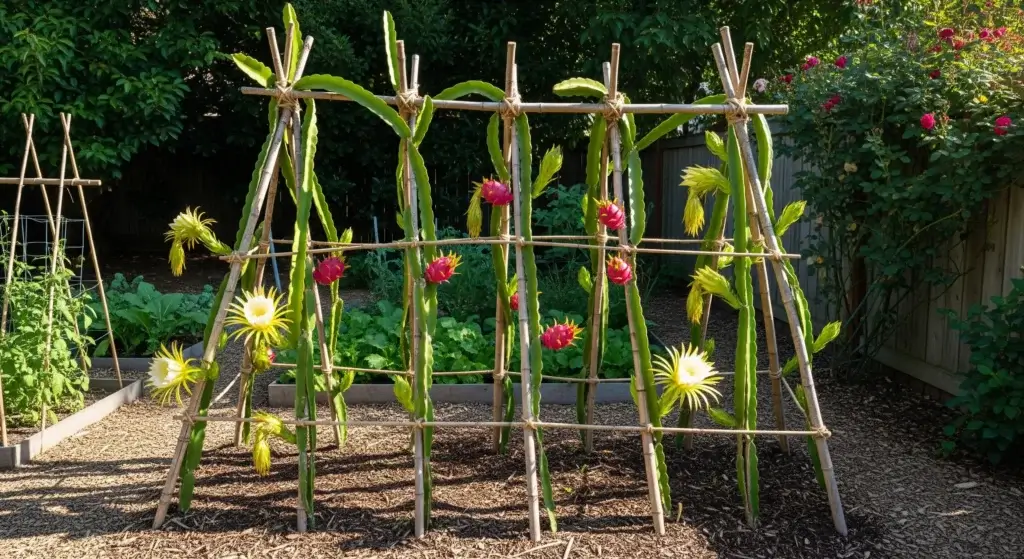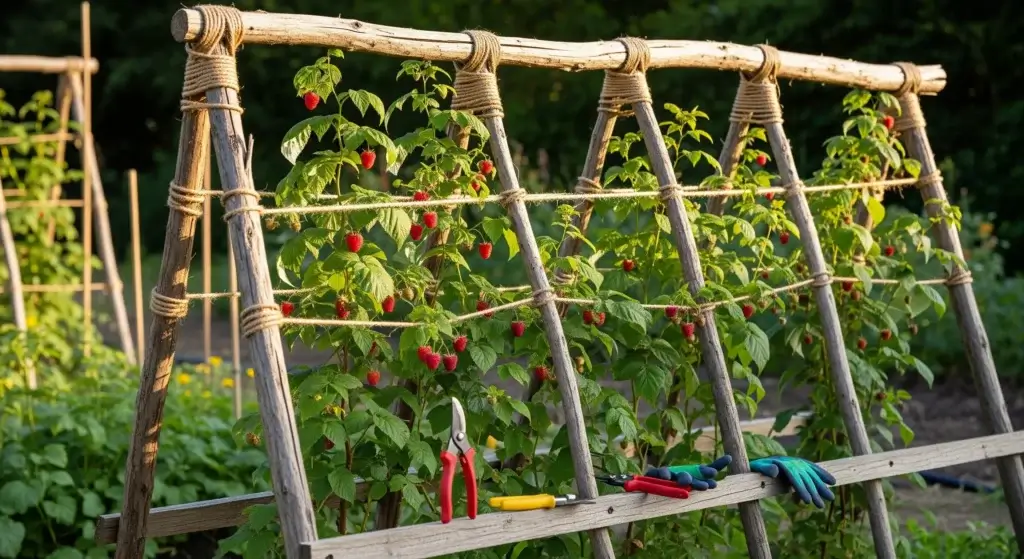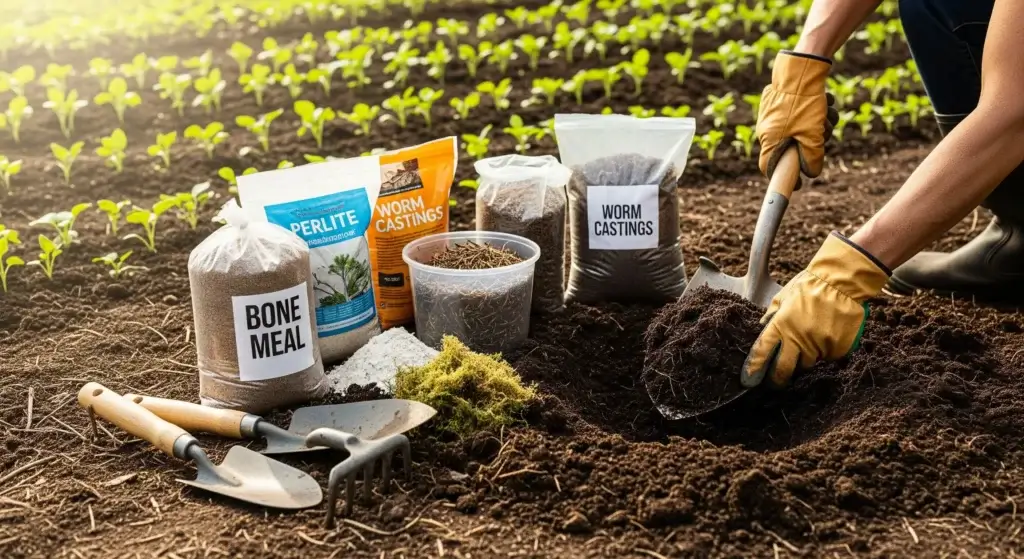
Growing your own vegetables can save money and bring fresh produce right to your kitchen table.
But did you know that homemade fertilizers can boost your garden’s productivity without harming the environment?
In this article, we’ll discuss several DIY plant foods made from everyday materials, helping you grow healthy vegetables while saving money and reducing waste.
Let’s dive in!
DIY Plant Food Options
There are numerous options available for creating your own organic plant food.
We’ve chosen four popular methods based on ease of preparation and effectiveness.
- Read also: DIY Plant Food Recipes for Cut Flowers
- Read also: DIY Plant Food Recipes for Indoor Plants
Compost tea

Compost tea is like liquid gold for your plants. It’s made by steeping compost – a mixture of organic matter like kitchen scraps, leaves, and grass clippings – in water.
As the compost breaks down, it releases essential nutrients, beneficial bacteria, and fungi, which are then infused into the water.
This nutrient-rich concoction acts as a natural fertilizer, improving soil structure, increasing microbial activity, and enhancing plant growth.
Regular application of compost tea can boost soil fertility, leading to healthier, more robust plants.
Eggshell fertilizer

Don’t toss those eggshells – they’re a valuable resource for your garden!
Crushed eggshells are an excellent source of calcium, a vital nutrient for plant growth.
Adding crushed eggshells to the soil helps strengthen plant cell walls, promotes strong root development, and improves resistance to drought stress.
Simply crush the eggshells into small pieces and mix them into the soil or sprinkle them around the base of your plants.
Over time, the eggshells will decompose, releasing calcium into the soil and benefiting your plants.
Banana peel fertilizer

Before you discard those banana peels, consider giving them a second life in your garden.
Banana peels are packed with potassium, phosphorus, and nitrogen – essential nutrients for healthy plant growth.
To make banana peel fertilizer, chop or blend the peels and bury them directly in the soil near your plants.
As the peels decompose, they gradually release nutrients into the soil, providing a natural and slow-release fertilizer for your garden.
This homemade fertilizer not only nourishes your plants but also helps reduce waste by repurposing kitchen scraps.
Coffee grounds fertilizer

If you’re a coffee lover, your garden can benefit from your daily brew.
Used coffee grounds are rich in nitrogen, a key nutrient for promoting leafy growth and overall plant vigor.
Additionally, coffee grounds are slightly acidic, which can help balance the pH of alkaline soils.
Simply sprinkle the coffee grounds around the base of your plants or mix them into the soil.
Over time, the coffee grounds will break down, enriching the soil with nitrogen and organic matter. Plus, coffee grounds can also act as a natural deterrent for pests like slugs and snails, making them a versatile addition to your garden arsenal.
Considerations and Tips
Considerations
- Nutrient balance: While DIY options can be beneficial, they might not provide a complete range of nutrients crucial for optimal plant growth.
- Composting requirements: Ensure you have suitable conditions and knowledge before relying solely on compost-based DIY fertilizers.
- Concentration and application: Be mindful of ingredient concentrations and follow dilution instructions precisely to avoid harming plants.
- Potential pest attraction: Some DIY options like manure tea might attract unwanted pests. Consider alternatives or implement pest control measures if necessary.
- Plant-specific needs: Different vegetables have varying nutrient requirements. Research specific needs and tailor your DIY mix accordingly.
- Soil conditions: Soil type and pH significantly impact nutrient availability. Adjust your DIY mix or consider soil amendments based on your specific soil conditions.
Tips
- Start small: Experiment with small batches of DIY plant food and observe its effect on your plants before widespread application.
- Monitor your plants: Closely observe your vegetables for signs of nutrient deficiency or over-fertilization. Adjust your DIY mix or application frequency as needed.
- Combine approaches: Consider using multiple DIY options in combination to provide a broader range of nutrients.
- Supplement with organic matter: Regularly add organic matter like compost or leaves to your soil to improve its structure and nutrient content.
- Practice sustainable methods: Utilize kitchen scraps and yard waste for your DIY mixes, promoting environmentally friendly gardening.
- Consult resources: Refer to gardening books, online guides, or experienced gardeners for further guidance and information.

Benefits and Cautions
Benefits
- Cost-effective: DIY options can significantly reduce fertilizer costs compared to store-bought brands.
- Sustainable: Utilizing kitchen scraps and yard waste minimizes waste and promotes environmentally friendly gardening.
- Customizable: You can tailor your DIY mix to address the specific nutrient needs of your vegetables based on soil tests or plant requirements.
- Organic and natural: Avoids potential risks associated with chemical fertilizers, promoting a healthier soil ecosystem and potentially reducing residue on your vegetables.
- Educational: Experimenting with DIY methods creates a deeper understanding of plant nutrition and soil health.
Cautions
- Nutrient imbalance: DIY options might not provide a complete range of nutrients needed for optimal growth.
- Ineffectiveness: Some methods may not offer sufficient nutrient concentrations or readily available forms for plant uptake.
- Composting requirements: Composting takes time, space, and proper management, which might not be feasible for everyone.
- Over-fertilization: Inappropriate concentration or application can harm plants due to nutrient imbalances or salt buildup.
- Pest attraction: Certain options like manure tea might attract unwanted pests, requiring additional pest control measures.
- Limited knowledge: Using DIY methods without a proper understanding of plant needs and soil conditions can lead to unintended consequences.
Conclusion
Crafting your own organic plant food is a simple, budget-friendly, and eco-conscious endeavor.
By repurposing everyday waste items, you can create potent supplements to foster the growth of vibrant vegetables.
Gather your banana peels, coffee grounds, and eggshells, and embark on a journey to nurture your garden naturally!
- Read also: Homemade Plant Insect Spray
- Read also: DIY Potted Plant Watering System Guide



